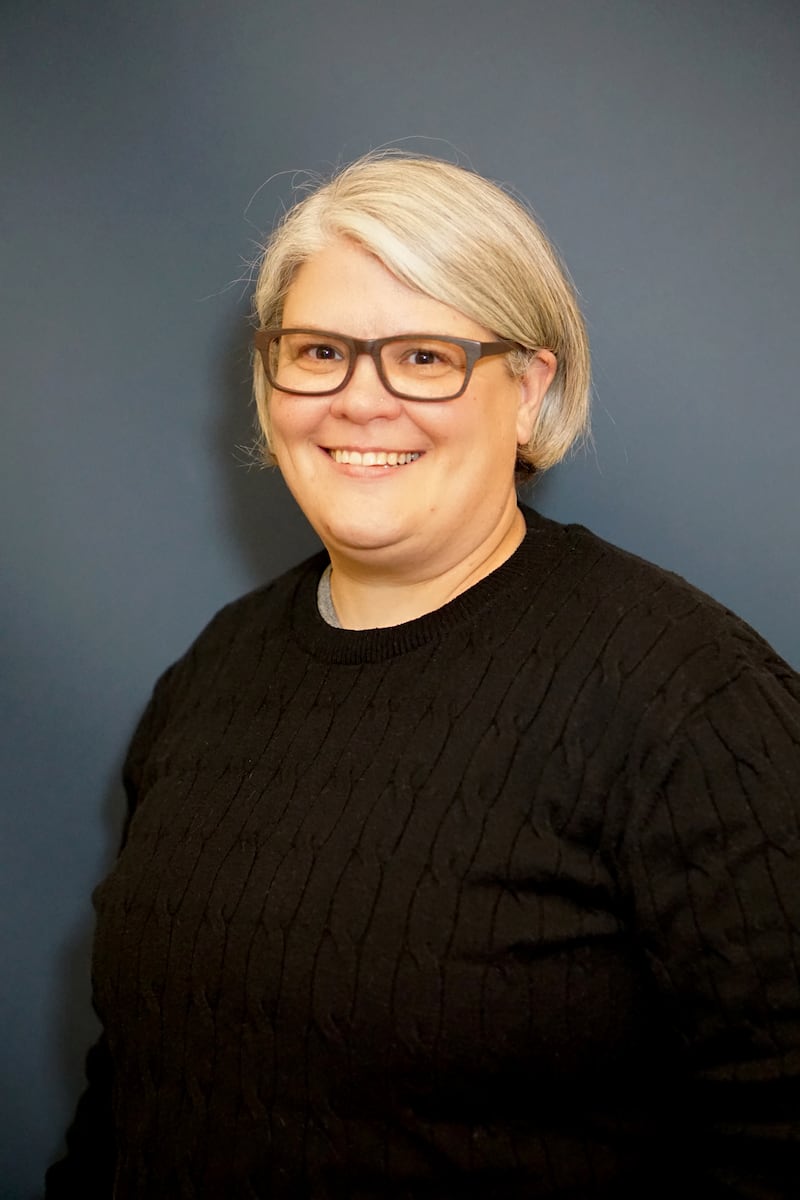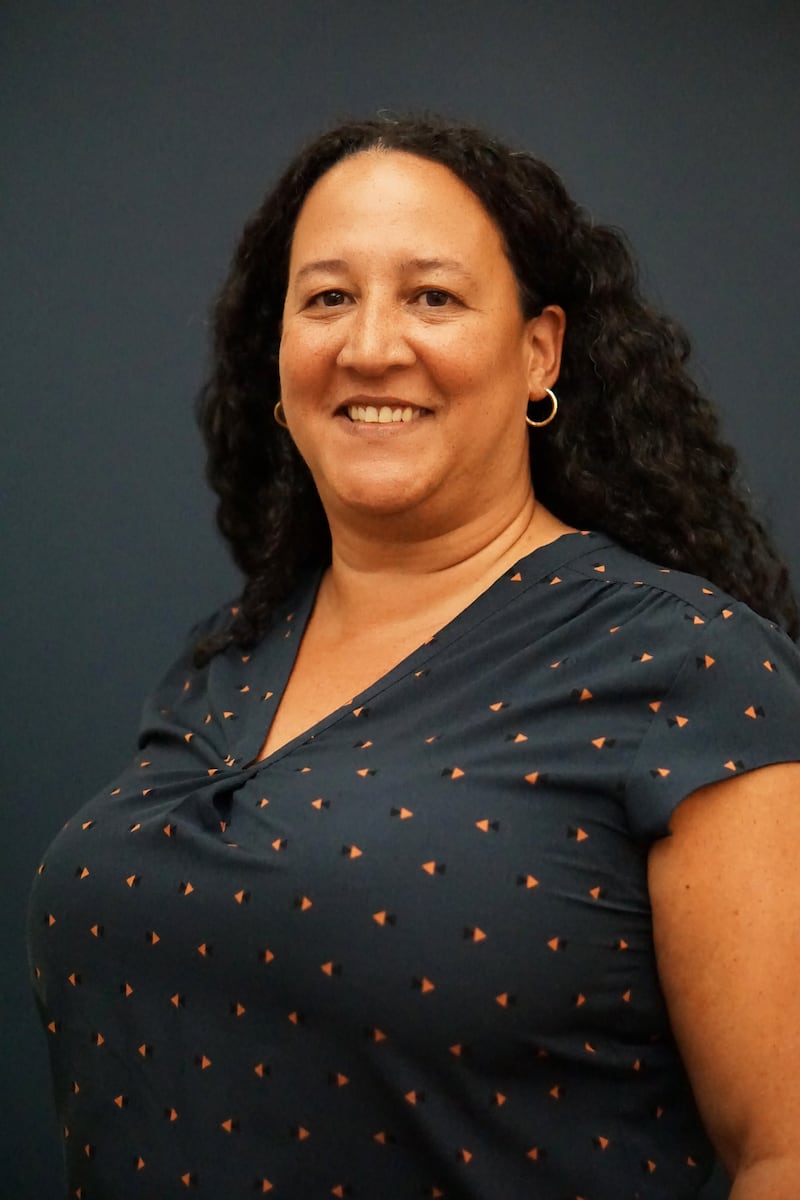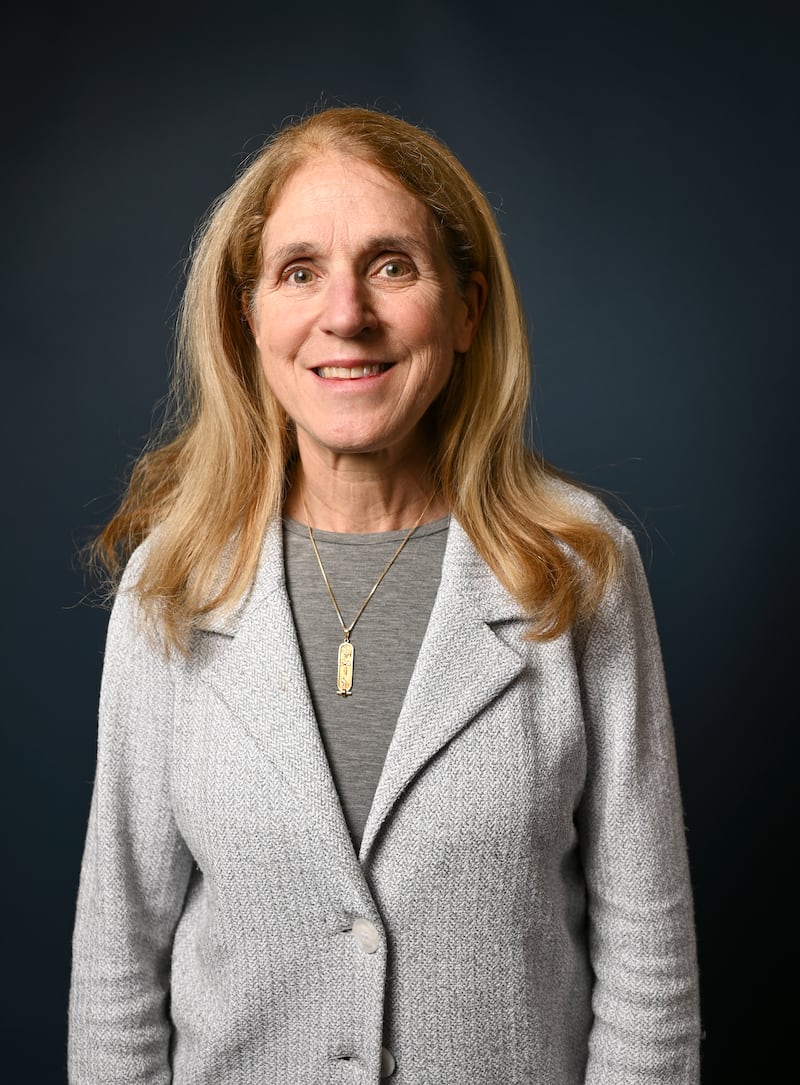Multnomah County Commissioner
District 1
Meghan Moyer

For the past seven years, Multnomah County District 1 has been home to a bomb thrower.
Sharon Meieran, an emergency room doctor and lawyer, has used her perch on the city’s westside (with a chunk of inner Southeast) to prod, pester and, at times, harangue two county chairs: Deborah Kafoury and her successor Jessica Vega Pederson.
Meieran’s biggest beefs are with the county’s approaches to homelessness, mental illness and addiction. We (mostly) cheered Meieran’s work, grateful for how she kept the county commissioners from lapsing into total groupthink.
Her second, and final, term ends this year. As five candidates seek the job, we’d like to see her seat stay in the hands of someone who won’t go along to get along.
To that end, we were dazzled by Margot Wheeler (no relation to Portland’s mayor). She’s a business consultant who works part time in the Multnomah County Treasury. John McCain may have ridden on a bus called the “Straight Talk Express,” but Wheeler is driving it.
At its worst, the county is a decrepit pumphouse that sprays money at some 100 nonprofits that try to house the homeless, care for the mentally ill and, most recently, educate preschoolers. Tracking that cash is tough. Believe us, we try.
Wheeler knows her way around the rusty pipes, and she’s not afraid to describe the dysfunction. The county’s contract management is “terrible,” she says. The Preschool for All program is “huge and full of highly paid individuals.” What grade would she give Chair Vega Pederson? Whatever is below an F, she says.
Wheeler, 35, has guts. She risks her contract with the county with such unvarnished talk.
But as much as we like Wheeler, we’d like her to get a little more experience managing people. We worry that her candidacy is a protest, mostly. She missed the deadline to be listed in the Voters’ Pamphlet. (“A very hard lesson learned,” she says.) She’s raised just $1,000, and she has no endorsements. We hope she’ll be back.
In the meantime, we’re going with another woman who understands the gears of government: Meghan Moyer. A native Oregonian, Moyer has packed a lot into her 44 years. After college, she worked on an Oregon House campaign, then became a lobbyist for the Parent Teacher Association’s national office. She spent seven years at Service Employees International Union, then started her own construction company (her father was in the business). Since 2021, she’s been at Disability Rights Oregon, the state’s nonprofit advocate for people with disabilities.
Moyer is as irked as Wheeler about the county’s operation, but she’s been closer to the front lines in the battle to house the homeless and treat people with mental illness.
“We don’t have a functional behavioral health system,” Moyer says. “There are no real front doors for getting help, either for addiction or for mental health.”
Among the other candidates, Vadim Mozyrsky is an administrative law judge who ran in 2022 for Portland City Council, and who is still casting about for an elected office; Chris Henry is chair of the Oregon Progressive Party; and Kevin Fitts is a longtime advocate who has made real change for people with mental illness. He and Moyer share many of the same priorities, but we think she’ll deliver the message with a little more diplomacy.
Who’d play Moyer in a movie? Melissa McCarthy.
Multnomah County Commissioner
District 2
Shannon Singleton

When Commissioner Susheela Jayapal decided to run for Congress in November, she vacated the seat for this district, which spans most of North and Northeast Portland.
Five candidates are running. The most qualified and suited to the job is Shannon Singleton.
That’s a selection we didn’t expect to make. After all, Singleton has long been part of an apparatus that’s struggled to make a meaningful dent in the homelessness crisis.
A social worker by training, she worked in housing policy and then as director of equity and racial justice in Gov. Kate Brown’s office for three years, led major homeless nonprofit JOIN for a short time, worked at the Portland Housing Bureau, and prior to that worked as a program manager for Cascadia Behavioral Health’s outreach team and one if its transitional housing facilities. For eight months in 2022, she was interim director of the Joint Office of Homeless Services, until she left of her own accord to go work for a public affairs firm. County Chair Jessica Vega Pederson replaced her with Dan Field.
We entered this election cycle doubtful that Singleton, 47, could show independence from the nonprofit world she came from, and which the county for decades hasn’t held accountable for the hundreds of millions of dollars it distributes each year to tackle addiction, homelessness and mental illness. Moreover, we had concerns about her diligence. People who worked under her at the county said she was an inattentive leader who attended meetings mostly on Zoom, and we’re concerned that she hasn’t held down any job for more than five years.
But Singleton surprised us: She criticized the county and the Joint Office, giving it a C letter grade, for failing to get money out the door on time or open the doors to shelter properties the Joint Office purchased while she served as interim director. She also said nonprofits receiving homeless dollars from the Joint Office need to be held to higher standards for the work they do, and should they fail to meet standards, they should lose funding.
She also pointed out a key failing of the Joint Office: The county keeps nonprofit providers so siloed and deprived of data there’s little opportunity for service providers to understand what might be working for another provider. She persuasively argued that the county should be helping its contractors talk to each other to see where problems are and who needs help.
It’s one thing to talk tough, it’s another to prove independence. But we hope Singleton will demand stronger results than the county is producing, and use her experience to intelligently prod the chair’s office.
The candidate in this race with the greatest name recognition is former Portland Mayor Sam Adams, 60. He’s seeking a second chance in local government. The trouble is, he’s already had one. He’s twice left City Hall under a cloud, most recently departing from Mayor Ted Wheeler’s office amid allegations he bullied women in the City Attorney’s Office. While he’s a skilled politician and knowledgeable about government, we believe he’s burned too many bridges to be effective.
Adams’ talent is for pushing past backlash—he seems immune to criticism, for better or worse—and for trying new things, like when he convinced Mayor Wheeler to set up mass encampments to help people move from the streets to housing. (The results from those sites have so far been inconclusive, as WW reported last month, but hardly the human rights violation detractors predicted.) But Adams’ abrasive style won him few allies at City Hall, and it’s hard to imagine things will be different at the county.
Jessie Burke, 43, CEO of The Society Hotel and chair of the Old Town Community Association, is running on a campaign platform similar to Adams’. But she failed to show us that she’d done her homework on the county’s biggest problems, or that she has a constructive agenda that matches her frustration with current conditions.
The other two candidates running are Dr. Carlos Jermaine Richard, a director of equity and inclusion at Multnomah County and an adjunct professor at Warner Pacific University, and Nick Hara, a data consultant. Of these, Singleton inspires the most confidence.
Who’d play Singleton in a movie? Tracee Ellis Ross.
Multnomah County Commissioner
District 3
Julia Brim-Edwards

Brim-Edwards has been on the Multnomah County board for just 10 months, having won the Southeast Portland seat that Jessica Vega Pederson vacated to become chair. But it seems like she’s been on the job a lot longer. She’s brought much-needed energy to the county, helping fellow contrarian Sharon Meieran fight the status quo.
“I have my elbows out,” says Brim-Edwards, once a six-sport athlete at Washington High School. “Collaboration is not an outcome.”
Brim-Edwards, 62, started her career as a staffer to U.S. Sen. Bob Packwood, then became director of communications for the Oregon speaker of the House. She served one term on the Portland Public Schools board from 2001 to 2005, went to work at Nike for 17 years, then rejoined the School Board in 2017, where she still serves, in addition to her day job at the county. (She can hold both offices because the School Board is a volunteer position.)
Brim-Edwards has learned her way around the county quickly. She’s on top of the numbers, which helps when she gets into the weeds with Vega Pederson, as often happens.
Her opponent in this race is TJ Noddings, 30, a housing navigator for the Cascade AIDS Project. He’s mostly a one-issue candidate, and that issue is housing. The county, he says, isn’t getting its millions out the door fast enough, especially for housing vouchers. Noddings makes good points about the county’s slow responses to housing, and he clearly knows his stuff on the subject, but we think it’s way too soon to toss out an experienced leader who is bringing a varsity game to what has been a JV organization.
Who’d play Brim-Edwards on film? Julia Louis-Dreyfus.
Multnomah County Commissioner
District 4
Vince Jones-Dixon

District 4 is Multnomah County’s outback. It stretches almost to Cascade Locks and includes rural towns like Corbett and Latourell, which are as different from Portland as Burns or Newburg. It also includes Gresham, the biggest city in the district, where most of the district’s commissioners have come from. That’s unlikely to change this year.
Gresham City Councilor Vince Jones-Dixon, 35, is the clear front-runner in this race, in part because he has just two opponents, neither of whom have much relevant experience.
Brian Knotts is a technology consultant who joined the race because he didn’t want someone to win unopposed, like Lori Stegmann did in 2020. (Stegmann is term-limited out now.) Knotts came in for our endorsement interview. Timothy Youker, a philanthropist and teacher, didn’t.
Jones-Dixon and Knotts couldn’t be more different. Knotts is running mostly because he’s pissed off about how the county maintains the roads around his home in Corbett. Jones-Dixon got into politics after his brother, a gang member, was shot and killed in Rockwood.
We liked Knotts’ clarity, even where we disagreed. He voted against Measure 110 and would again. He thinks the nonprofits that do most of the county’s work on homelessness and mental health need a ruthless audit. The roads are shit and need attention.
Jones-Dixon, whose day job is at a funeral home, was less direct. For example, he has endorsed both Mike Schmidt and Nathan Vasquez for Multnomah County district attorney. Schmidt has always taken his calls, Jones-Dixon says, and Vasquez prosecuted the man who killed Jones-Dixon’s brother.
Careful answers aside, Jones-Dixon has a track record, and he has real-world experience in a part of Multnomah County that needs a local hero more than ever.
Who’d play Jones-Dixon in a movie? Michael B. Jordan.
Multnomah County District Attorney
Nathan Vasquez

This contest is a referendum on the tenure of District Attorney Mike Schmidt, who almost from the minute he took office became a dead man walking. Schmidt rode a criminal justice reform tide to victory in May 2020—and his predecessor, Rod Underhill, vacated office six months early, leaving Schmidt the parting gift of hundreds of arrested George Floyd protesters. Schmidt announced he wouldn’t charge anybody unless they were violent or had damaged property. His detractors pounced: The continuation of riots in Portland long after other cities got back to normal, they proclaimed, was on Schmidt.
It’s been downhill from there. Murders skyrocketed during COVID lockdowns, fentanyl markets opened near shuttered storefronts, and parts of downtown came to resemble scenes from a John Carpenter movie. Schmidt has never been able to shake the circumstantial evidence that the city’s woes were a result of a national donor class—which funded Measure 110 in November 2020—using Portland as a petri dish for reform, with him running the experiment.
How much of Portland’s ills are really Schmidt’s fault? It’s difficult to say, since he has operated in an environment of relentless bad faith. Cops started campaigning against him when they arrived at crime scenes (if they arrived at crime scenes). His line prosecutors complained to the press, and downtown property owners plastered his face on caustic billboards. None of this is surprising: It’s happened in every major U.S. city where a reform DA was elected, from San Francisco to Philadelphia.
Still, aside from politics, Schmidt, 43, struggles at managing what amounts to one of Oregon’s largest law firms. Whether it is because he simply doesn’t have the respect of his subordinates or because he is an inexperienced prosecutor who hasn’t mastered the logistics, the result is the same.
Early in Schmidt’s term, the director he hired to run the Justice Integrity Unit—a central plank of Schmidt’s platform—quit after just six weeks amid allegations he literally slept on the job. Experienced prosecutors have fled his office, and their replacements say they didn’t receive the training they needed for trials. In March 2023, after prosecutor Amber Kinney filed a formal complaint that she and other women suffered gender discrimination in the office and that Schmidt was not doing anything about it, Schmidt’s office generated a report clearing him and his office. Four months later, the Oregon Bureau of Labor & Industries followed up with its own investigation and found “substantial evidence” that women employees suffered discrimination in his office.
To be sure, riots, COVID, a national spike in crime rates, and Measure 110 have made Schmidt’s job very difficult. His unwillingness to take much responsibility, however, is another red flag. In two interviews in the past year, he balked when asked to identify a regret, other than wishing he had won the messaging battles. There is little reason to think his next four years will run more smoothly: He does not have the confidence of the two groups he needs as partners—police and line prosecutors—and there’s little evidence that can change.
Schmidt’s opponent, Nathan Vasquez, is a better choice. His chief merit is that he’s a longtime prosecutor, with a firmer grasp on the basic task of allocating limited resources to the most deserving cases. Based on our interviews with Vasquez, 46, we don’t expect great things. We do expect he will focus on making sure the office functions more efficiently. He’s a technician, not a politician. That’s what this office needs.
For more than three decades, the Multnomah County district attorney was Mike Schrunk, an unassuming man who rarely made headlines. That was by choice. He also moved the office incrementally leftward with such initiatives as launching one of the nation’s first drug courts. It is our hope the next DA learns from Schrunk’s example and dedicates himself to quiet competence. Portland deserves a little peace.
Who’d play Vasquez on film? Benicio del Toro.
